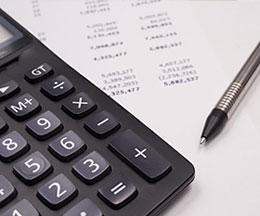Cash Management

The Treasurer takes custody of all monies belonging to the Town and must meticulously account for those monies. In this accounting, the Treasurer utilizes and maintains a cash book, containing a breakdown of all receipts, disbursements, and cash balances (MGL c41 §35). The Treasurer determines the cash needs of the Town, and ensures ample liquid assets are available to meet current obligations. All money not required for payment of employees or vendors must be invested by the Treasurer in such a manner as to require the payment of interest on the money at the highest possible rate reasonably available, taking account of safety, liquidity, and yield. (MGL c44 §55B)
Cash Receipts
Municipal officers and departments are required to turn over money to the Treasurer. The following list identifies some of these officers and departments and includes an explanation of the particular receipts acquired from each source.
The Tax Collector makes turnovers to the Treasurer on Form AD 7, the Schedule of Payments to the Treasurer and provides a copy to the Accountant, who compares it with the cash reported by the Treasurer.
Departments turning over money to the Treasurer also utilize a Schedule of Departmental Payments to Treasurer. The schedule should list each payment, stating from whom it originated, the source of the funds, and the amount.
State and Federal Agencies electronically transfer monies to the Town in an account specified by the Treasurer, who shall notify the Accountant upon the receipt of these monies.
Treasurers may receive Miscellaneous monies from a variety of other sources such as; refunds from vendors, rental payments for use of municipal property, health insurance payments from retirees, and insurance recoveries from fire or physical damage policies. The treasurer should clearly identify the source of all receipts when recording them in the cash book.
Department of Revenue Form 9 & 10 Schedule of Departmental Payments to Treasurer
The heading of this schedule also should include the name of the department originating the schedule, the date the schedule is prepared and a department reference number. The actual schedule should list each payment, stating from whom it originated, the source of the funds, and the amount. In the case of multiple payments, a separate schedule listing each payee may be attached.
Form 10 should be signed by the responsible official in the originating department and given to the Accountant. Form 9, along with collected cash and checks, is given to the Treasurer for verification. The treasurer or her designee will count the funds, sign and date stamp the receipt, and return the receipt to the originating department. The department should retain a copy of Form 10 along with the receipt.
CASH DISBURSEMENTS
The treasurer possesses sole responsibility to pay the bills of a city or town and must make such payments in strict accordance with the General Laws. This responsibility is set out in MGL c41 §35, which states, “[The treasurer] shall receive and take charge of all money belonging to the town, and pay over and account for the same according to the order of the town or its authorized officers. No other person shall pay any bill of any department.”
MGL c 41 §52 & §56 detail the mandatory procedures for submitting, approving, and paying bills. Section 56 states, in part:
1) The selectmen and all boards, committees, heads of departments and officers authorized to expend money shall approve and transmit to the town accountant as often as once each month all bills, drafts, orders and payrolls chargeable to the respective appropriations of which they have the expenditure. Such approval shall be given only after an examination to determine that the charges are correct and that the goods, materials or services charged for were ordered and that such goods and materials were delivered and that the services were actually rendered to or for the town as the case may be.
2) The town accountant shall examine all such bills, drafts, orders and pay rolls, and, if found correct and approved as herein provided, shall draw a warrant upon the treasury for the payment of the same, and the treasurer shall pay no money from the treasury except upon such warrant approved by the selectmen.
3) The treasurer shall not pay any claim or bill disallowed by the town accountant as being fraudulent, unlawful, or excessive. The DOR has consistently held that an expenditure is “excessive” when the appropriation is exhausted.
When submitting invoices to the accountant for payment, a schedule of departmental bills payable along with the original invoice and when applicable contract or purchase order is required. The Treasurer’s office should receive a copy of the schedule of departmental bills payable, invoices and any remittance advice or envelops.
The heading of this schedule should include the name of the department originating the schedule, the budget fund and department charged for payments, the date of the warrant, and warrant number. The schedule detail should list each vendor, account short code, and the dollar amount. The department head or board responsible for the budget must sign the submitted schedule.
All vendors used by the Town of Milford must have a recent IRS Form W-9 on file. When processing payment of an invoice to a new vendor, submit Form W-9 to the Treasurer’s Office to request the new vendor be added to BudgetSense.

